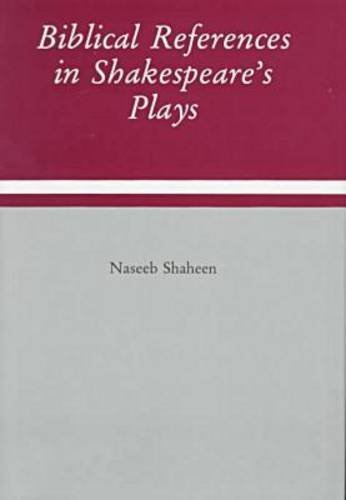I try to keep a Shakespeare play going for my daily reading regimen. Recently I finished a re-read of Julius Caesar and went on to Antony and Cleopatra which I don’t think I have read before. This occurs in the first few lines:
CLEOPATRA If it be love indeed, tell me how much,
ANTONY There’s beggary in the love that can be reckoned.
CLEOPATRA I’ll set a bourn now far to be beloved.
ANTONY Then must thou needs find out new heaven, new earth.
“New heaven, new earth!” Antony’s Biblical quotation reminded me of my interest in Shakespeare’s use of Bible. I pulled out my Shaheen Biblical References in Shakespeare’s Plays.

Sitting next to it on my Shakespeare shelf was Steven Marx’s Shakespeare and the Bible.

I had forgotten about this neat little book. I had read some pages into but decided I would start from the beginning which is what I did as Eileen and I sat next Lake Michigan yesterday for date day.
While Shaheen has a chapter for every Shakespeare play, Marx uses five of them. He chooses them carefully and cleverly. He then pairs a book of the Geneva Bible with each one. The first play is The Tempest which he pairs with Genesis.
Apparently The Tempest comes first in the First Folio collection done of Shakespeare shortly after his death.
Marx finds some startling and beautiful parallels between the play and Genesis. What fun!
His last choice is also The Tempest which is thought by many scholars to be Shakespeare’s last play. He pairs this with the Apocalypse. In other words, the last book of the Bible, Revelations. The two chapter titles are 2. Posterity and Prosperity: Genesis in The Tempest and 6. A Masque of Revelation: The Tempest as Apocalypse. The first chapter is 1. Introduction: “Kiss the book”.
It’s a short little book and I look forward to not only reading it but other books and poems he has mentioned such as The Pleasures of Reading by my favorite Hebrew Bible translator, Robert Alter; Words with Power, a book I had not heard of by Northrup Frye who wrote The Great Code which is a very cool book; and Jane Smiley’s A Thousand Acres which is based on King Lear.
The poem he has mentioned is “Peter Quince at the Clavier” by Wallace Stevens.” I recognize this poem and have read it but I’m not sure I understood that Quince was a character out of A Midsummer Night’s Dream. I will have to revisit the poem in light of that. I seem to remember thinking that Quince was some fancy harpsichordist I didn’t recognize.
My rash was raging yesterday. I forgot to take moisturizing cream with me to the beach and the sun seemed to irritate the rash. I used my misery as an excuse to have a real martini last night followed by the usual wine and whisky.